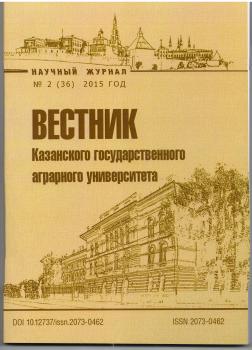The article deals with the theoretical and methodological foundations of the labor market, its social and economic content, in particular, the subjects, the structure of the labor market and features, that distinguish it not only from the markets of goods and services, but also from the markets of other factors of production. An important feature of the labor market is that, like all other types of the market, it directly depends on the market situation, i.e. the ratio of supply and demand, which is formed depending on the state of the economy (rise or fall); branch structure of the economy; level of technical base development; well-being (income level of the population, including per capita income), development of the market for goods and services, housing, securities; state of social infrastructure; the development degree of the multistructure of the economy; measures to develop integration links (sectoral and territorial). In addition, it is influenced by demographic, ethno-social, political, environmental and some other factors. Depending on the relationship between supply and demand, the labor market situation can be of the following types: labor-deficit, when the labor market lacks labor supply; labor surplus, when there is a large number of unemployed in the labor market and, correspondingly, an excess of labor supply; equilibrium, when the demand for labor corresponds to his proposal. Various theoretical and practical approaches to the definition of the essence of the concept of “labor market” of domestic and foreign researchers are analyzed. The concept of “social and economic content of the labor market” is formulated and the author’s interpretation of the economic category “labor market” as an object of regulation under the conditions of the formation of a socially-oriented economy is scientifically grounded.
labor market, social-oriented economy, social and economic relations, labor market subjects, aggregate demand and supply.
Исследования рынка труда являются предметом многочисленных исследований казахстанских и российских ученых. Тем не менее, методологию исследования рынка труда можно отнести к разряду формирующихся, поскольку само понятие «рынок труда» модифицируется в процессе трансформации социально-экономических отношений и развитии механизмов государственного регулирования занятости. Сложность теоретического изучения рынка труда связана и с его многогранностью и многоаспектностью, что требует расширения рамок проводимых исследований. Все это предопределяет особую значимость исследования функционирования рынка труда в условиях формирования социально-ориентированной экономики и обосновывает актуальность исследовательской работы. Целью работы является исследование теоретических и методологических основ рынка труда, его социально-экономическое содержание. Объектом исследования является рынок труда.
Анализ и обсуждение результатов. Рынок труда является одним из важных индикаторов экономического и социального развития общества, который отражает общее развитие социальных и экономических отношений, процессы формирования рыночной инфраструктуры и его эффективное функционирование. Так, рынок труда оказывает влияние на экономический рост, удовлетворение насущных потребностей населения, усиление конкурентоспособности национальной экономики, структурные преобразования в отраслях экономики, формирование нового поколения экономически активных граждан, развитие человеческих ресурсов и др. При этом рынок труда является наиболее сложным элементом рыночной экономики. Здесь не только переплетаются интересы работника и работодателя при определении цены труда и условий его функционирования, но и как в зеркале отражаются практически все социально-экономические явления, происходящие в обществе [1, с. 51]. От того, насколько успешно функционирует экономика, в какой фазе экономического цикла она находится, каково поведение основных субъектов рынка (работника и работодателя), зависит спрос на рабочую силу и ее предложение, а соответственно, и уровень безработицы.
Рынок труда находится под воздействием многих факторов, большинство которых зависят от товарного рынка. Конъюнктура рынка формируется под воздействием состояния экономики, способа ведения хозяйства и структурных изменений, технического и организационного уровня предприятий, количественно-качественной сбалансированности средств производства и рабочей силы [2].
1. Ostapenko Yu.M. Ekonomika truda: uchebnoe posobie. [Economics of labor: textbook]. - 2-e izd., - M.: INFRA - M, 2007. - P. 272.
2. Zmiyak S.S. Modern ideas about the labor market. [Sovremennye predstavleniya o rynke truda]. // Trud i sotsialnye otnosheniya. - Labor and social relations. - 2011. - №9. - P. 24-32.
3. Leonidova G.V. Trudovoy potentsial Rossii: problemy sberezheniya, problemy razvitiya territorii. [Russia’s labor potential: problems of saving, problems of territory development]. 2013, - № 4 (66). - P. 49 - 57.
4. Kurbyshev D.N. Problemy regulirovaniya rynka truda v usloviyakh reformirovaniya ekonomiki. [Problems of labor market regulation in conditions of economic reform]. - Moskva: Laboratoriya Knigi, 2010. - P. 211.
5. Kozyrenko Yu.V. Rossiyskiy rynok truda v usloviyakh krizisa. [The Russian labor market in a crisis]. - Moskva: Laboratoriya knigi, 2010. - P. 44.
6. Taschev A.K. Man in the labor market and in the sphere of material production. [Chelovek na rynke truda i v sfere materialnogo proizvodstva]. // Voprosy ekonomiki i prava. - Questions of economics and law. - 2011. - №38. - P. 79-84.
7. Rofe A.I., Zbyshko B.G., Ishin V.V. Rynok truda, zanyatost, ekonomika resursov dlya truda: Ucheb. posobie. [Labor market, employment, economy of resources for labor: manual]. Edited by Professor A.I. Rofe. - M.: Izdatelstvo MIK, 1998. - P. 160.
8. Bulanova V.S. Rynok truda. [Labor market]. / V.S. Bulanova, N.A. Volgina. - M.: Ekzamen, 2000. - P. 158.
9. Ekonomika i sotsiologiya truda. [Economics and sociology of labor]. / Edited by Doctor of Eonomic sciences, Professor Kibanov A.Ya. - Moskva, INFRA - M, 2007. - P. 584.
10. Suraganova S.K. Rynok agrarnogo truda: stanovlenie i problemy regulirovaniya (na primere Severnogo Kazakhstan) / Diss. … dokt. ekonom. nauk. (The agricultural labor market: formation and problems of regulation (on the example of Northern Kazakhstan) / Dissertation of Doctor of Economic sciences). The Republic of Kazakhstan, Astana, 2001. - P. 310.





